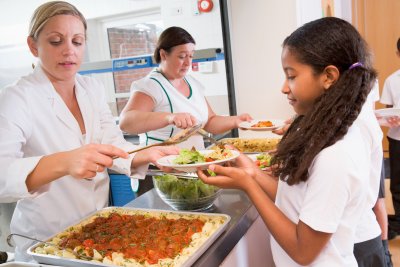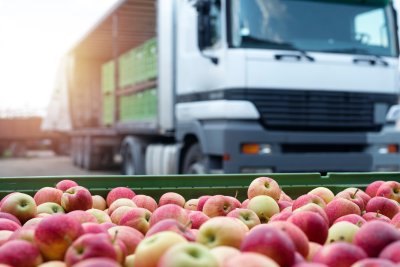 Copyright: AnnaStills | iStock
Copyright: AnnaStills | iStock
Parent Ambassadors want food education at the heart of curriculum review
Responding to the call for evidence, Children’s Food Campaign parent ambassadors have submitted key recommendations and an open letter, urging policymakers to place food education at the heart of an updated curriculum.
The government launched a review of England's national school curriculum to ensure it effectively meets the needs of children and young people and remains fit for purpose. Our parents have already been calling for an updated curriculum in their parents’ manifesto for healthier children’s food.
Enhancing food education offers numerous benefits and positive outcomes. It promotes lifelong healthy eating habits and helps reduce health disparities, contributing to improved public health. By incorporating knowledge about food systems and sustainability, it also prepares children to navigate future challenges such as climate change. Additionally, students gain essential life skills, including cooking and the ability to improvise healthy meals, which foster independence and creativity. Expanding food education also opens pathways to career opportunities in key industries like food, hospitality, and farming, helping to address workforce shortages in these vital sectors.
Here are some of the recommendations our ambassadors are calling the Curriculum and Assessment Review team to consider:
1. Strengthening the Curriculum
To improve food education, it is essential to expand its content to be more comprehensive and relevant. This can be achieved by teaching children how to cook healthy, simple meals from scratch, while also educating them about where food comes from and how it is grown. Lessons should also incorporate important topics like sustainability, climate change, and food systems.
Additionally, it is important to include culturally diverse food practices to promote a broader understanding of global food traditions. To ensure that food education is consistently integrated, it should be introduced from the early years through to secondary school, and made a multidisciplinary subject that is tied into other areas of learning such as Science, Geography, and Health Education.
2. Mandatory Inspection and Oversight
To enhance food education, specific evaluations should be introduced under Ofsted inspections, with a focus on how schools are teaching Cooking and Nutrition, as well as broader food education. These evaluations should also assess how food is handled throughout the school day to ensure it aligns with health and sustainability goals.
Also, efforts should be made to reduce disparities in food education quality by implementing standards that ensure consistency across schools and educational stages. This will help provide all students with a high-quality and equitable food education experience.
3. Emphasising Practical Learning
To ensure students gain essential food-related skills, practical skills benchmarks should be established. By the end of primary school, every child should understand what constitutes healthy food and be able to cook at least five simple, healthy meals from scratch. By the end of secondary school, students should have the ability to improvise healthy meals without needing a recipe. In addition, the curriculum should incorporate hands-on activities such as gardening and food growing from the early years onwards, teaching children environmental awareness and life skills. These activities should be linked to food education, sustainability, and the development of practical life skills, providing a holistic approach to learning.
4. Expanding Career Pathways
Reintroducing the Food A-Level would provide an academic pathway for students interested in continuing their studies in culinary arts and nutrition, allowing them to pursue these skills without having to leave school early for vocational routes. Additionally, it would address industry needs by preparing students for careers in the food, hospitality, and farming sectors, helping to alleviate skill shortages in industries that employ a significant portion of the UK workforce. This approach would ensure that students have access to both academic and vocational opportunities in food-related fields, benefiting both individuals and the economy.
5. Addressing Barriers to Implementation
To improve food education, it is essential to enhance access to resources by ensuring schools are equipped with the necessary tools, materials, and teacher training for effective delivery. Providing the required ingredients for cooking lessons is also crucial, with funding to cover ingredient costs to eliminate financial barriers for low-income families and remove any stigma, encouraging greater participation in cooking and food education programs.
Moreover, to overcome the challenge of limited focus on practical skills, the emphasis in food education should shift from theoretical knowledge to more practical, hands-on experiences, allowing students to develop essential life skills and a deeper understanding of food.
6. Adopting a Whole-School Approach
Food education should be integrated into extracurricular activities like cooking clubs, gardening, and farm visits, providing students with opportunities to learn in engaging, real-world settings. Additionally, it should be linked to sustainability and environmental topics across subjects such as Science, Geography, and others, fostering a deeper understanding of how food production and consumption impact the environment. This interdisciplinary approach would enhance students' awareness of food systems while also promoting practical skills and sustainable practices.
Parent Ambassador, Mary Needham says:
“To me it is a no brainer that our children should leave school knowing how to put simple ingredients together to create a balanced meal. My experience, both as a parent and a practitioner, shows me that teaching kids how cook from scratch boosts their confidence, sparks their curiosity and equips them with other essential life skills such as budgeting, financial resilience and teamwork. As well as this, the sensory and social nature of cooking is beneficial for their mental well being, creativity and cognitive development.
Children’s Food Campaign Officer, Naema Jannath says:
“Food plays a vital role in our daily lives, and it’s essential that the curriculum provides children and young people with the knowledge, skills, and passion for healthy, sustainable eating that they can carry throughout their lives. Our parents’ manifesto calls on the government to update the curriculum so that it actively encourages our children to engage in learning about food, from farm to fork, and ensures that the whole school environment puts these principles into action”
Children's Food Campaign: Campaigning for policy changes so that all children can easily eat sustainable and healthy food.
Sustain
The Green House
244-254 Cambridge Heath Road
London E2 9DA
020 3559 6777
sustain@sustainweb.org
Sustain advocates food and agriculture policies and practices that enhance the health and welfare of people and animals, improve the working and living environment, promote equity and enrich society and culture.
© Sustain 2025
Registered charity (no. 1018643)
Data privacy & cookies
Icons by Icons8







